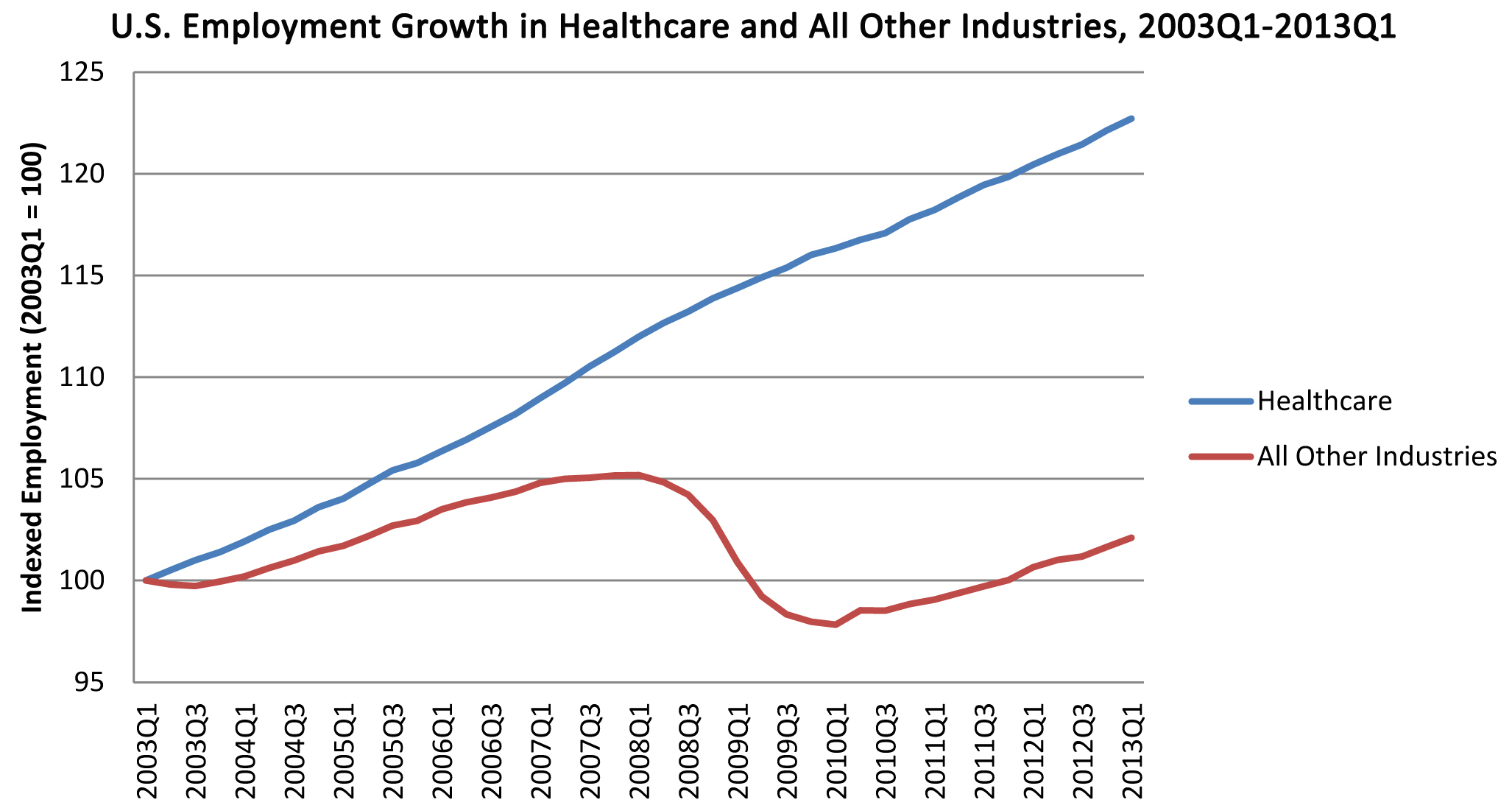New Brookings Institution Report Shows Healthcare Industry Added 2.6M Jobs Over 10 Years
The Brookings Institution is a non-profit, public policy think tank based in Washington, DC. Part of the organization’s mission is conducing independent research on a variety of topics and issues impacting our economy.
The Brookings Institution has released a new report analyzing the growth of jobs in the healthcare sector. In the Institution’s Health Metro Monitor Supplement, the researchers from the Metropolitan Policy Program at Brookings tracked the role of healthcare in the 100 largest metro areas in the U.S. Researchers found that jobs in the healthcare sector have grown faster than in any other industry in the last 10 years, adding 2.6 million jobs. This growth represents a 23% increase in employment growth, compared to 2% in other industries. Citing the implementation of the Affordable Care Act (ACA), expansion of efforts to improve healthcare outcomes and the need to contain healthcare costs, the researchers say there is tremendous amount of focus on healthcare today.
Key findings from the Brookings Institution report include:
- Across the 100 largest metropolitan areas, the healthcare industry accounts for more than one in every 10 jobs.
- In every one of the 100 largest metro areas, healthcare today represents a higher share of jobs than before the Great Recession struck.
- Occupational distribution of healthcare workers does not dramatically differ across metro areas, although healthcare support workers have the greatest variation between places.
About the Metropolitan Policy Program at the Brookings Institution
Created in 1996, the Metropolitan Policy Program provides decision makers with cutting-edge research and policy ideas for improving the health and prosperity of cities and metropolitan areas, including their component cities, suburbs, and rural areas. Visit www.brookings.edu/metro to learn more.

